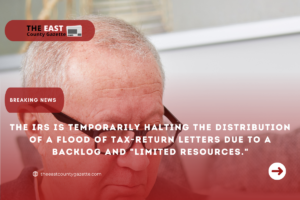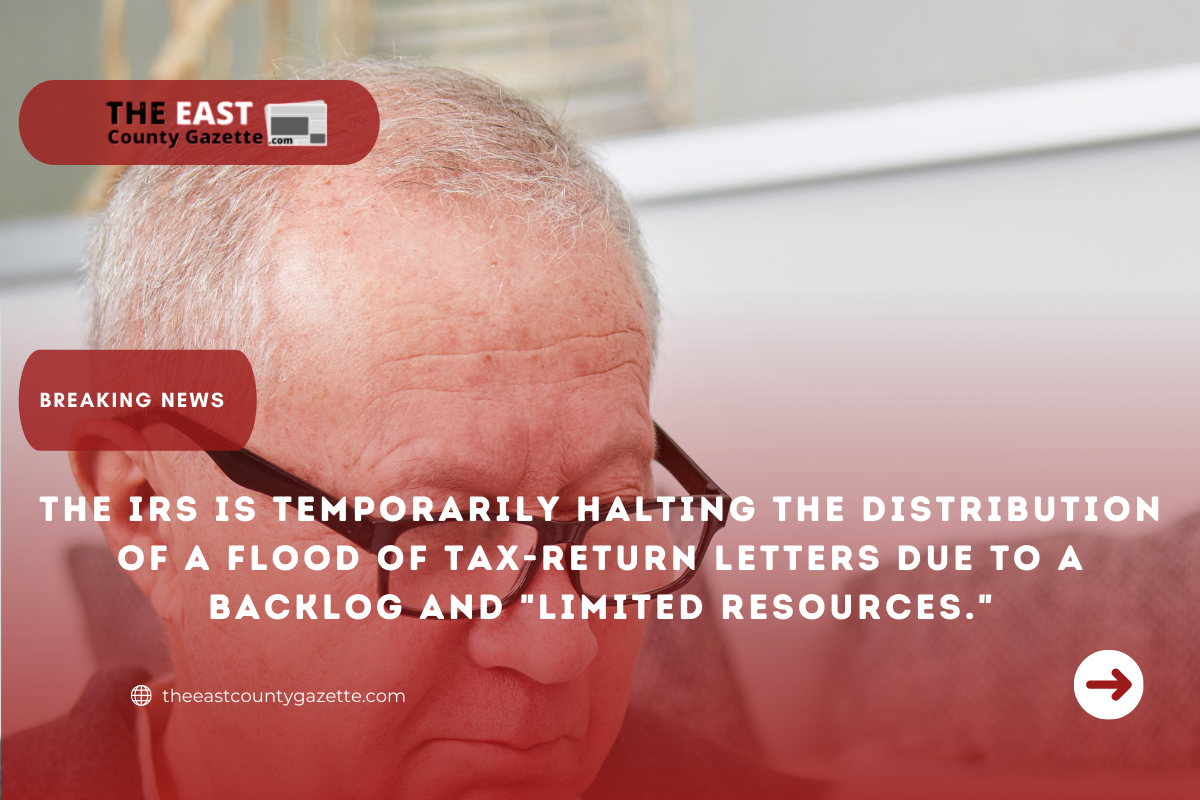The IRS Is Temporarily Halting the Distribution of Tax-return Letters Flood Due to Backlog and “Limited Resources.”
While the Internal Revenue Service continues to strive to reduce paperwork and worry during the current tax season and a backlog of unprocessed returns from last year, it has announced that it will cease mailing more than a dozen letters to taxpayers.
Balance due reminders, automated collection notices, and notices of unfiled tax returns are among the communications that have been temporarily halted, the IRS announced on Wednesday.
Earlier this month, the agency announced that it would halt the distribution of letters in which it claimed it did not have records of a taxpayer’s income tax return, despite the fact that the taxpayer had paid up.

The Internal Revenue Service is working through a backlog of unprocessed papers that, as of late December, included 6 million original tax returns, 2.3 million amended tax returns, and 5 million pieces of taxpayer correspondence, among other things.
Consequently, the chances are good that the IRS already has the documents and data it is looking for as a result of the letters.
“It is possible that some individuals and tax professionals will still receive these notices in the coming weeks.” Because “the Internal Revenue Service continues to process prior-year tax returns as fast as feasible,” there is often no need to call or reply to the notice, according to the IRS.
Read More: Social Security Automatically Sends $687 Payments as an Increased COLA of $1,657 Arrives.
Except if the individual who receives the warning is in arrears on their tax obligations. As a result, the IRS encourages the recipient to contact the agency to rectify the matter.
The notifications that have been stopped include letters with the formal titles CP59 and CP759, which are both notices of no return submitted, as well as letters with the formal titles CP518 and CP618, which are final notices of no submitted return.
Notices of suspended balance-due notices are issued in the form of letters with the formal designations of C501, C503, and C504 — the last of which serves as a final notice and a warning that the IRS intends to levy the outstanding balance.
These letters can be upsetting for the people who receive them, especially if they have done all possible to avoid getting into trouble with the taxman to begin with.
These letters, no matter how bureaucratic they appear to be, can be quite distressing for the people who receive them, even if they have done all possible to avoid getting into trouble with the taxman.
Fixing the problem can take a long time for someone who is trying to speak with someone at the IRS, especially if the person on hold has their own job to complete while waiting on hold.
Commissioner Charles Rettig stated in a statement that “IRS workers are committed to doing everything feasible with our limited resources to assist people throughout this period.” Approximately 1,200 employees will be reassigned in order to deal with the backlog.

